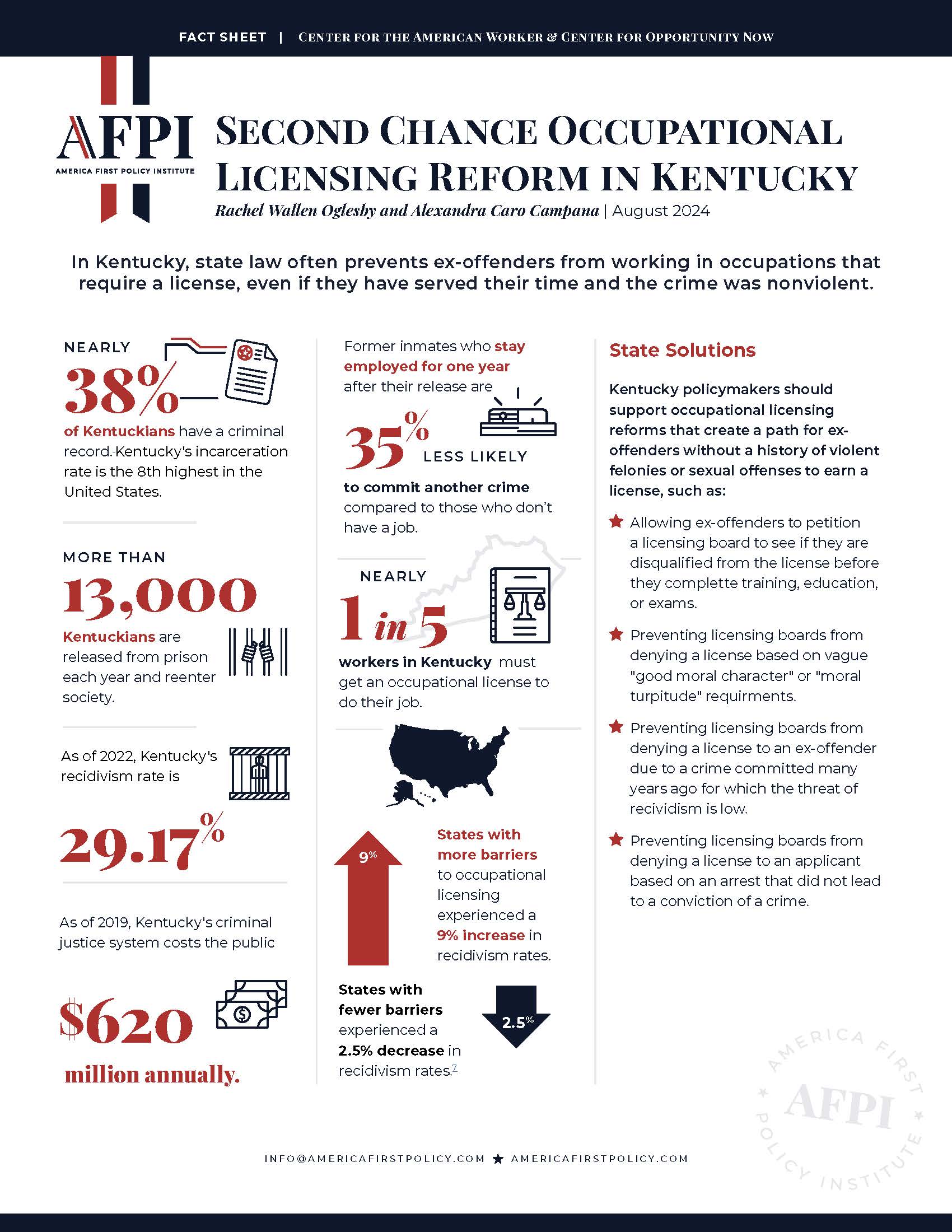Second Chance Occupational Licensing Reform in Kentucky
In Kentucky, state law often prevents ex-offenders from working in occupations that require a license, even if they have served their time and the crime was nonviolent.
Nearly 38% of Kentuckians have a criminal record. Kentucky's incarceration rate is the 8th highest in the United States.
More than 13,000 Kentuckians are released from prison each year and reenter society.
As of 2022, Kentucky's recidivism rate is 29.17%
As of 2019, Kentucky's criminal justice system costs the public $620 million annually.
Former inmates who stay employed for one year after their release are 35% less likely to commit another crime compared to those who don’t have a job.
Nearly 1 in 5 workers in Kentucky must get an occupational license to do their job.
States with more barriers to occupational licensing experienced a 9% increase in recidivism rates.
States with fewer barriers experienced a 2.5% decrease in recidivism rates.
State Solutions
Kentucky policymakers should support occupational licensing reforms that create a path for exoffenders without a history of violent felonies or sexual offenses to earn a license, such as:
- Allowing ex-offenders to petition a licensing board to see if they are disqualified from the license before they complette training, education, or exams.
- Preventing licensing boards from denying a license based on vague "good moral character" or "moral turpitude" requirments.
- Preventing licensing boards from denying a license to an ex-offender due to a crime committed many years ago for which the threat of recividism is low.
- Preventing licensing boards from denying a license to an applicant based on an arrest that did not lead to a conviction of a crime.
